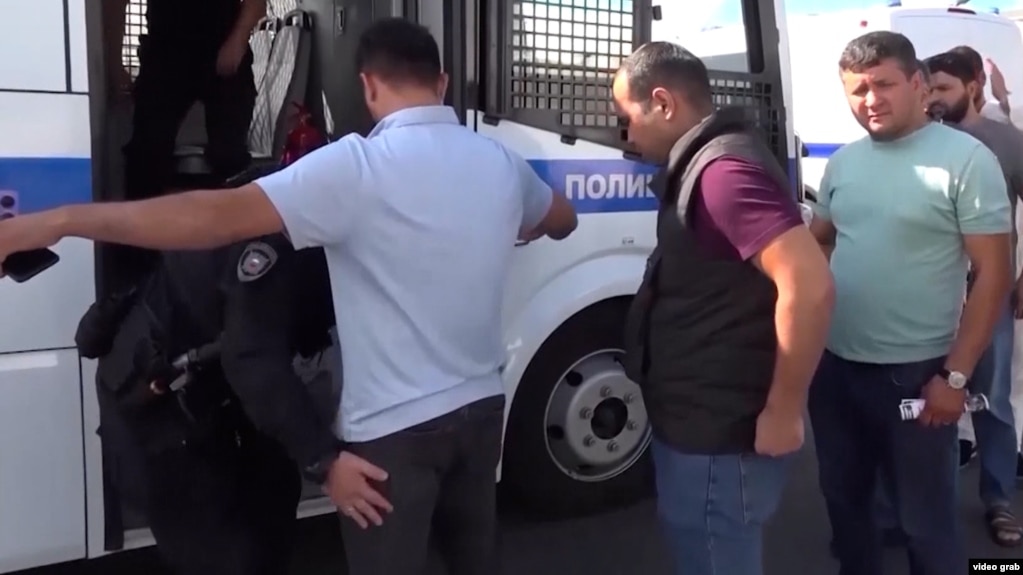Searches, arrests, expulsions: the drama of Tajik migrants in Russia
30 years after independence, Dushanbe has not yet been able to create defence mechanisms for its fellow citizens abroad. Since the beginning of the war in Ukraine, the 'pressure' on Tajik migrants in the Russian Federation has increased. The call for a 'migration amnesty' to avert expulsions like that of Anis, who ended up in a police raid in Moscow.
Moscow (AsiaNews) - The hardships for migrants from Central Asia continue in Russia and especially for those coming from Tajikistan, with almost daily reports of police raids against them, with searches, arrests and expulsions.
Yet, labor migration to Russia remains one of the most important factors in the Central Asian economy and for Russians themselves; and, at the same time, the most sensitive to the difficulties and humiliations it entails. In thirty years of independence, Tajikistan has not managed to sufficiently diversify the mechanisms of migration, creating systems to defend its labor resources abroad.
An investigation by Radio Ozodi attempted to collect the testimonies of the people involved, such as that of 37-year-old Anis (not his real name), who has been living the life of a working migrant as a plumber for 17 years.
At the beginning of the year he ended up in a police raid in Moscow, only to be repatriated after his arrest. “I have three children to support, not to mention my parents, brothers and sisters whom I help financially, and in all these years I have not managed to obtain Russian citizenship because I didn't have any money left over for bribes to distribute... now I and my family - he says - we were left without any means of support".
Over the last year, pressure on Tajik migrants has increased heavily in Russia, as never before, accompanied by "migrantophobic" rhetoric from politicians and the media in the increasingly radical context of the "war of civilizations". The Tajiks are in great difficulty above all because, as almost everyone states, "we cannot count on the authorities in Dushanbe".
According to statistics from past years, money transfers from migrants constitute around 40% of Tajikistan's GDP, reaching a record figure of 3.2 billion dollars in 2022. Bank transfers from Russia and other countries are the only guarantee of solvency for the majority of Tajik families, they support the development of internal trade and the entire banking system, saving the population from falling to the lowest level of poverty.
The activist and politician Farkhod Odinaev, an economic migrant for years, complains that "the activity of the government and especially of the Tajikistan embassy in Russia is totally ineffective".
It denounces, "it leaves our compatriots prey to every form of abuse, while the other governments in the region at least try to defend their own". If workers are not defended in the most ordinary matters, he adds, this becomes all the more impossible when "mass campaigns against migrants are ignited, inspired from above and spread across all regions of the Russian Federation".
The head of the People's Democratic Party in power, MP Saidžafar Usmonzoda, responded to these accusations, according to whom "in such delicate contexts the dialogue between the authorities of the different countries is activated at all levels, but this is not blurted out in space informative".
Negotiations would be underway between the delegations of the parliaments of Moscow and Dushanbe, with various proposals on the table, since "we too are citizens of this country, and we cannot ignore the problem", assures Usmonzoda. In his opinion, we can understand Russia's need to increase controls, in a period of wars and great tensions, to minimize the dangers of extremism and terrorism.
In May this year, the Tajik Interior Minister Ramazon Rakhimzoda had proposed to his Russian counterpart, Vladimir Kolokoltsev, to intervene in cases of gratuitous violence against migrants, especially students, by the police, and for this reason the Russian ambassador to Dushanbe Semen Grigoriev had been summoned to the Foreign Ministry. President Emomali Rakhmon has reiterated in various meetings the request for a "migration amnesty" in Russia, and for a simplification of legalization procedures.
The Security Council in Moscow has promised a review of migration policy, but so far all this has produced no results, and the drama of the Tajiks in Russia seems to have no end. Many try to go elsewhere, to escape to the United States, but even these adventures are far from easy to achieve.
12/02/2016 15:14
12/03/2021 09:15
10/02/2022 09:55








.png)










